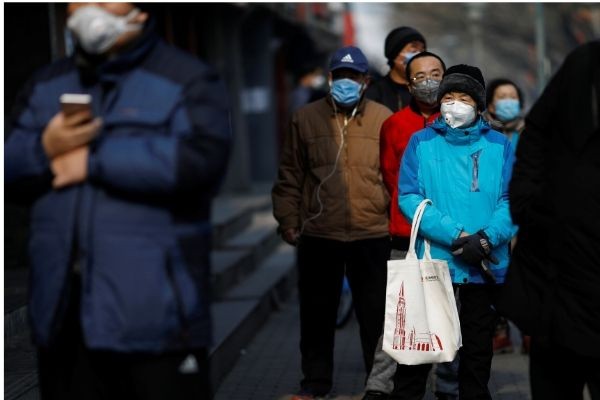
The ongoing coronavirus contagion that is spreading far and wide from Wuhan, is prompting the need for a coronavirus cure. One of the problems is researchers have to start from virtually nothing.
For the few coronaviruses already known to science, neither of them has a definite treatment. Most cures are just minimizing the symptoms, but a true cure is not finally realized. Viral treatments for other diseases like Ebola and HIV has some efficacy, but have not yet been confirmed.
Stephen Morse from Columbia University said that the coronavirus uses RNA to transmit their proteins, not DNA to infect host cells. RNA is used a lot for many cellular processes and it bypasses cell anti-bodies.
For the meantime, without a definite cure for the contagion, testing existing drugs as a remedy is not out of the question. It will be less expensive as well, for research and development as a more affordable and available treatment.
The first American patient was given an experimental drug called "Remdesivir" when his symptoms continued to get worse. This drug was developed to treat the Ebola virus, according a report in the New England Journal of Medicine.
Doctors was required to ask permission from the Food and Drug Administration before giving any drugs to the patient. No side effects were experienced by the patient and he was later released from the hospital.
Use of animal models of remdesivir in simulations will affect other types of coronaviruses, like MERS and SARS. More studies are needed to release the drug conclusively as an alternative cure.
An ongoing study is now being done to determine exactly what anti-virals are a coronavirus cure. Several chemicals like chloroquine for malaria and autoimmune disease may be able to stop the coronavirus in human cells. Both drugs show potential at lower concentrations, and are not toxic to human cells.
Fanxia Zhu, a professor at Florida State University noted that results from tests are good, and show promise. However, these drugs require more testing as the escalating contagion continues.
Initial performance results of the drugs Chloroquine and Remdesivir were noted in the lab within a short time. More studies and tests are in line to see if the drugs are a definite cure.
There is a good chance that these anti-virals might have worked on animals, but not humans. Until human trials, it will be an unknown factor whether they work or not.
Treating viruses is not that easy with the variety of their types, specific treatments are needed and not just a general cure for all. Giving the right treatment is important, or cells can be compromised rather than cured.
Once a virus finds a way to enter the cell, hijack the cellular machines, the host cell gets infected and mutated then kills the host cells. The process continues unless the right anti-viral bodies are used against the virus.
In 2003, the SARS virus was active but was cured by the right anti-viral medicine. The coronavirus however, is different, which makes the need to find the right cure even more crucial. Finding the right coronavirus cure is underway, but for now, any anti-viral that will stave off its symptoms for the time being is incredibly important.
Related article: China Fast Tracks Coronavirus Testing to Cope with Mounting Death Toll
© 2026 HNGN, All rights reserved. Do not reproduce without permission.








